简体中文
繁體中文
English
Pусский
日本語
ภาษาไทย
Tiếng Việt
Bahasa Indonesia
Español
हिन्दी
Filippiiniläinen
Français
Deutsch
Português
Türkçe
한국어
العربية
Why People Fall for Online Trading Scams
Abstract:Learn why people fall for online trading scams, common tactics used by scammers, psychological triggers, red flags, and how to protect yourself from fraud.
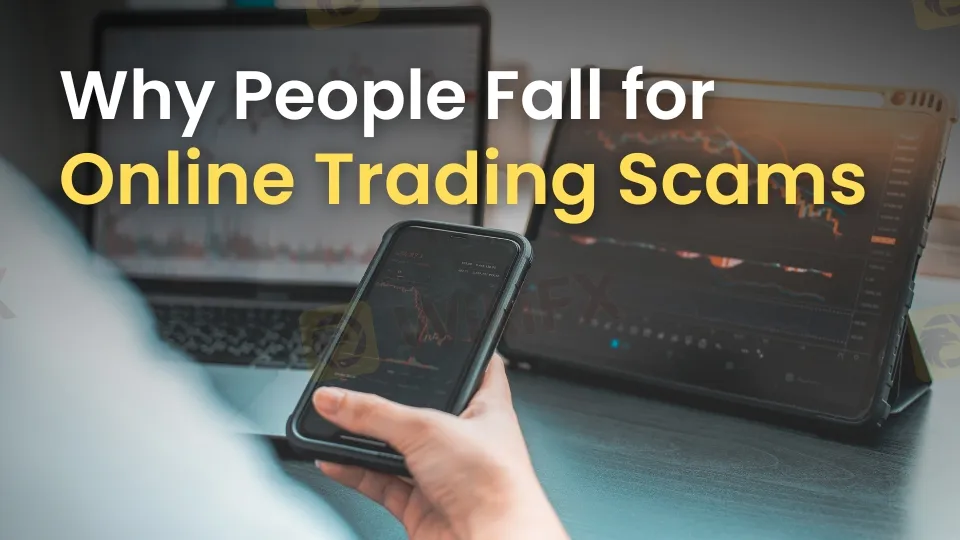
The internet today makes it easy for anyone to try growing their money through trading. Its exciting to think about turning a small amount into a big profit from your phone or computer. But this ease comes with a catch—online trading scams are everywhere. These scams trick people who want to make smart investments, using their dreams and trust against them. They can look like fake emails or pretend trading sites that promise big money with almost no chance of losing.
To stay safe, it helps to know how these scams work and why theyre so good at fooling people. This article will break down the tricks scammers use, the feelings they play with, and simple ways to spot trouble before it gets you.
Common Tactics Used in Online Trading Scams
Scammers are sneaky and have lots of ways to pull people in. One big trick is saying you‘ll get rich fast. They’ll put up ads or websites that shout things like “Make millions in a month!” These promises grab your attention and make you think you‘ve found a secret to success that others don’t know about.
Another move they use is fake proof. They show made-up stories from “happy customers” who say they got rich quickly. Sometimes they even pretend famous people back their ideas to make them look real. It‘s all a lie to make you believe it’s safe to jump in.
There‘s also something called a Ponzi scheme. Here, scammers take money from new people to pay the older ones, so it looks like everyone’s winning. But when not enough new people join, it falls apart, and most lose everything they put in.
Fake trading websites are super common too. These look just like real ones, with nice designs and tools that seem helpful. You put your money in, but when you try to take it out, it‘s gone—or the whole site vanishes. They’re so good at copying real sites that it‘s tough to tell what’s fake unless you look closely.

Psychological Triggers Behind Scams in Trading
Why do these scams work? It‘s all about how our minds work. One big reason is wanting more money fast. Scammers know some people really need cash or just want to get ahead quickly. They dangle huge rewards with no hard work, and that’s hard to say no to when youre hoping for a break.
Fear of missing out—called FOMO—is another trap. Scammers say things like “Act now or lose your chance!” They might add timers or say only a few spots are left. This makes you panic and sign up without thinking it through.
Trust is a weak spot too. If a scam comes from someone you know or a person online who seems smart, you might not question it. Scammers use popular faces—like YouTubers or X users with lots of followers—to push their lies. Seeing someone you like talk it up can trick your brain into trusting too much.
People also like feeling in charge. Scammers offer tools or sites that make you think youre running the show with your money. This fake control makes you feel safe taking bigger risks than you should.
How Scammers Exploit Investor Emotions
Feelings are a huge part of why these scams catch people. Scammers are pros at using them against you.
Hope is a big one. Lots of folks start trading because they want a better life—maybe to pay bills or save for something special. Scammers promise easy wins that spark hope, hiding the danger so you dont see it coming.
Desperation works too. If youre broke or worried about money, a “fix-everything” deal sounds perfect. Scammers push these fast solutions hard, making you act before you can think straight.
Confidence can trip you up as well. If you make a little money at first, you might feel like a trading genius. Scammers love this—theyll offer bigger, riskier deals to keep you hooked. By the time you lose, your cash is long gone.
Then there‘s wanting to fit in. Scammers show fake groups of “winners” online, sharing big success stories. It makes you feel like you’re joining a cool club, and that peer pressure pushes you to invest without checking facts.
Red Flags to Spot an Online Trading Scam
You can spot scams if you know what to look for. Here are some easy signs:
- Promises That Sound Too Perfect: If they say you‘ll definitely make money with no risk, it’s fake. Real trading always has ups and downs.
- No Rules or Oversight: Good trading sites follow laws and are watched by money experts. If they dodge this or act shady about it, run.
- Random Messages: Emails or calls out of nowhere offering deals are trouble. Real companies dont hunt you down like that.
- Rush You to Decide: If they push you to hurry up and join, slow down. Real deals let you take your time.
- Weird Websites: Look at the site. If its messy, has broken parts, or looks cheap, it might be fake. Real ones look sharp and work smoothly.
- Hard to Get Money Out: If taking your cashback is tricky or they ask for more fees, its a scam. Good sites make it simple.
Protecting Yourself from Fraudulent Trading Schemes
Heres how to keep your money safe:
- Check Everything: Before you give money, dig into the company. Read what others say, see if they follow laws, and look for complaints.
- Stick to Big Names: Use sites like Robinhood or Fidelity that everyone knows and trusts. They‘re safer because they’re watched closely.
- Skip Crazy Risks: If it‘s confusing or sounds wild, don’t do it. Stick to stuff you get and feel okay about it.
- Watch Out for Random Offers: Don‘t trust messages or calls you didn’t ask for. Ignore them or check them out first.
- Ask a Pro: If youre not sure, talk to someone who knows money stuff. They can spot scams you might miss.
In the end, online trading scams are tricky, but you can beat them. Learn their games, watch for warning signs, and take it slow. By staying smart and careful, you can keep your money safe and still grow it the right way.

Disclaimer:
The views in this article only represent the author's personal views, and do not constitute investment advice on this platform. This platform does not guarantee the accuracy, completeness and timeliness of the information in the article, and will not be liable for any loss caused by the use of or reliance on the information in the article.
Read more
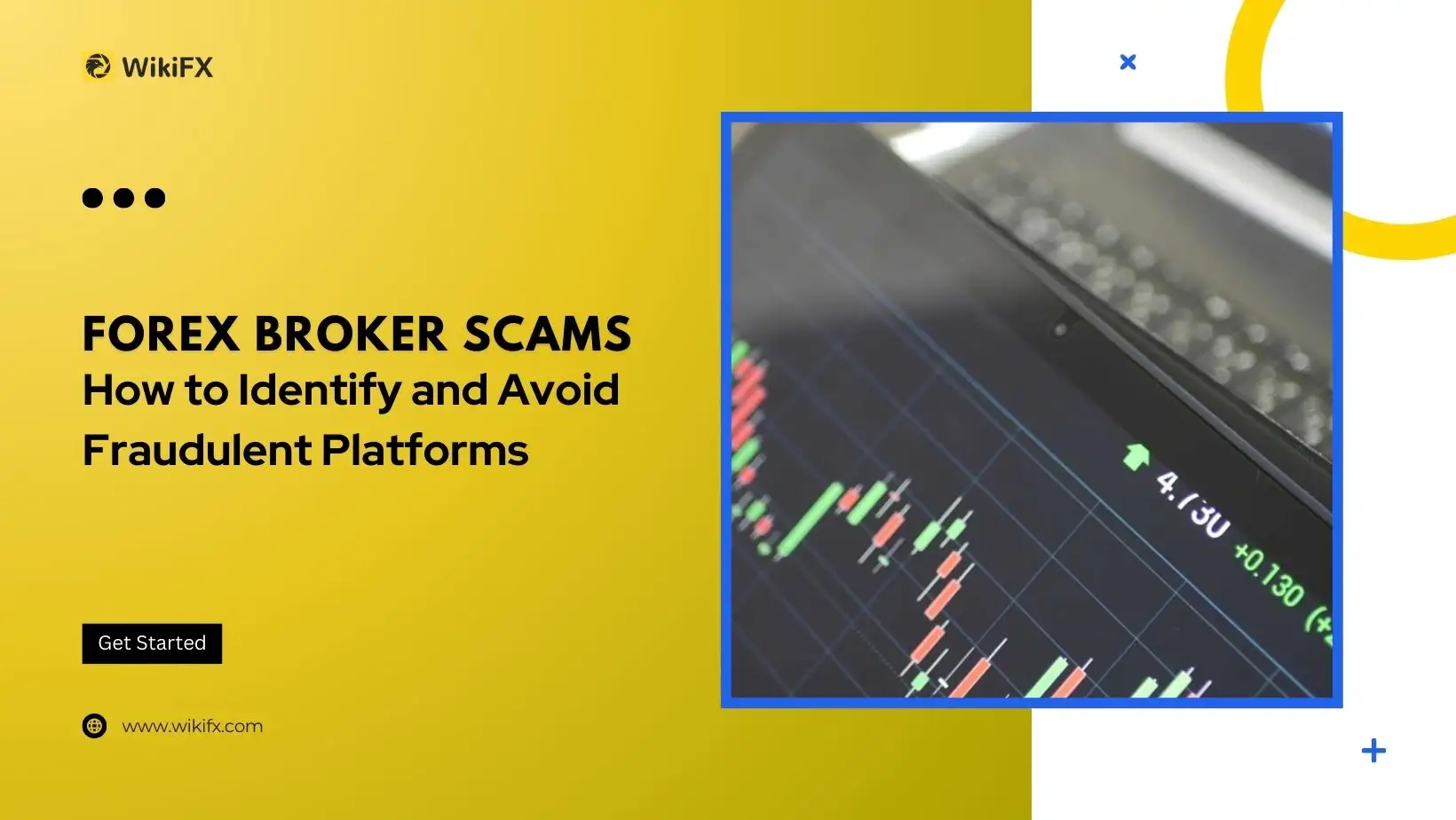
Forex Broker Scams: How to Identify and Avoid Fraudulent Platforms
Discover how a no spread forex broker works, its benefits and risks, and how to choose a regulated zero-spread trading platform safely.
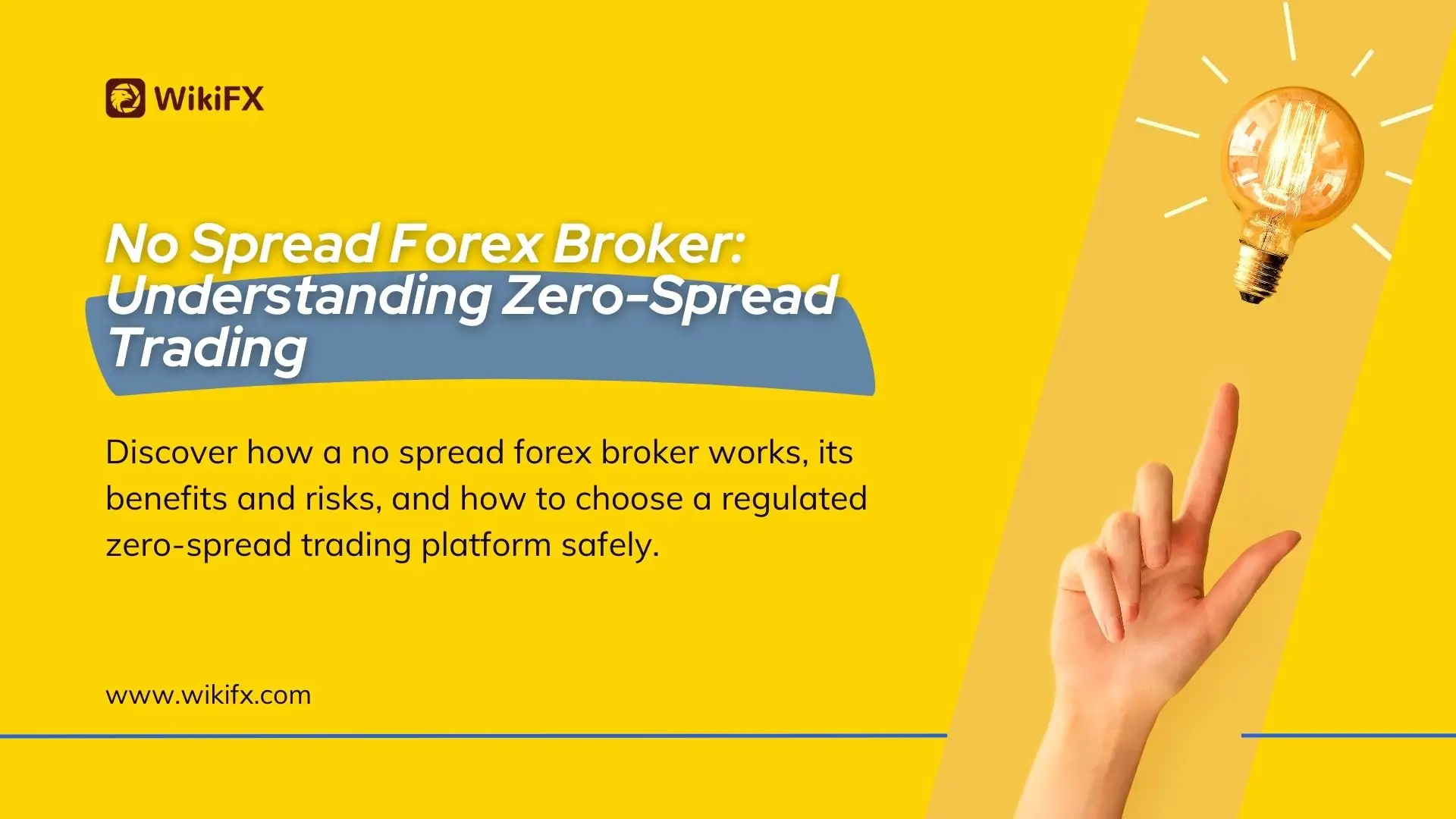
No Spread Forex Broker: Understanding Zero-Spread Trading
Discover how a no spread forex broker works, its benefits and risks, and how to choose a regulated zero-spread trading platform safely.
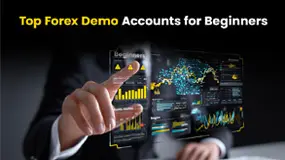
Top Forex Demo Accounts for Beginners
In this guide, we will explore the top forex demo accounts for beginners. We aim to help you find the best platform for your trading practice. Let's dive into the world of forex demo accounts and discover the best options available.
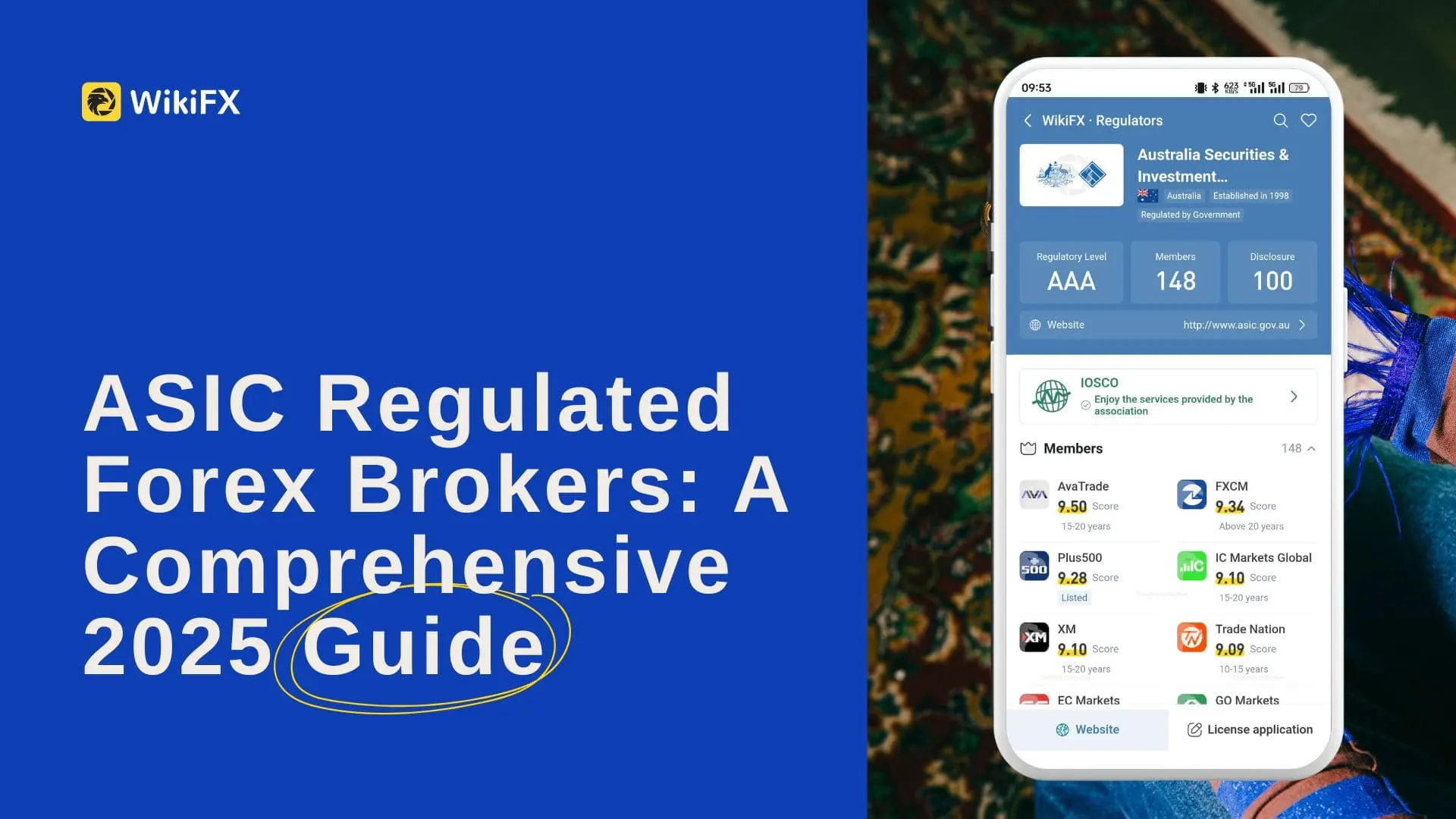
ASIC Regulated Forex Brokers: A Comprehensive 2025 Guide
Learn how ASIC regulated forex brokers protect traders through strict rules, licence verification, and why they’re trusted by global investors.
WikiFX Broker
Latest News
Datuk Seri Linked to RM8.4 Million Gold Investment Scam Under Police Probe
The Psychology Behind the Ascending Triangle Pattern in Forex
Charles Schwab Forex Review 2025: What Traders Should Know
The Global Inflation Outlook
What WikiFX Found When It Looked Into XS
ASIC Regulated Forex Brokers: A Comprehensive 2025 Guide
Is TradeEU Reliable in 2025?
Professional Forex Trading: Skills, Tools, & Strategies for Success
Investing in OnFin? Absurd Withdrawal Conditions & Trade Manipulation May Spoil Your Trading Mood
How Commodity Prices Affect Forex Correlation Charts
Currency Calculator


